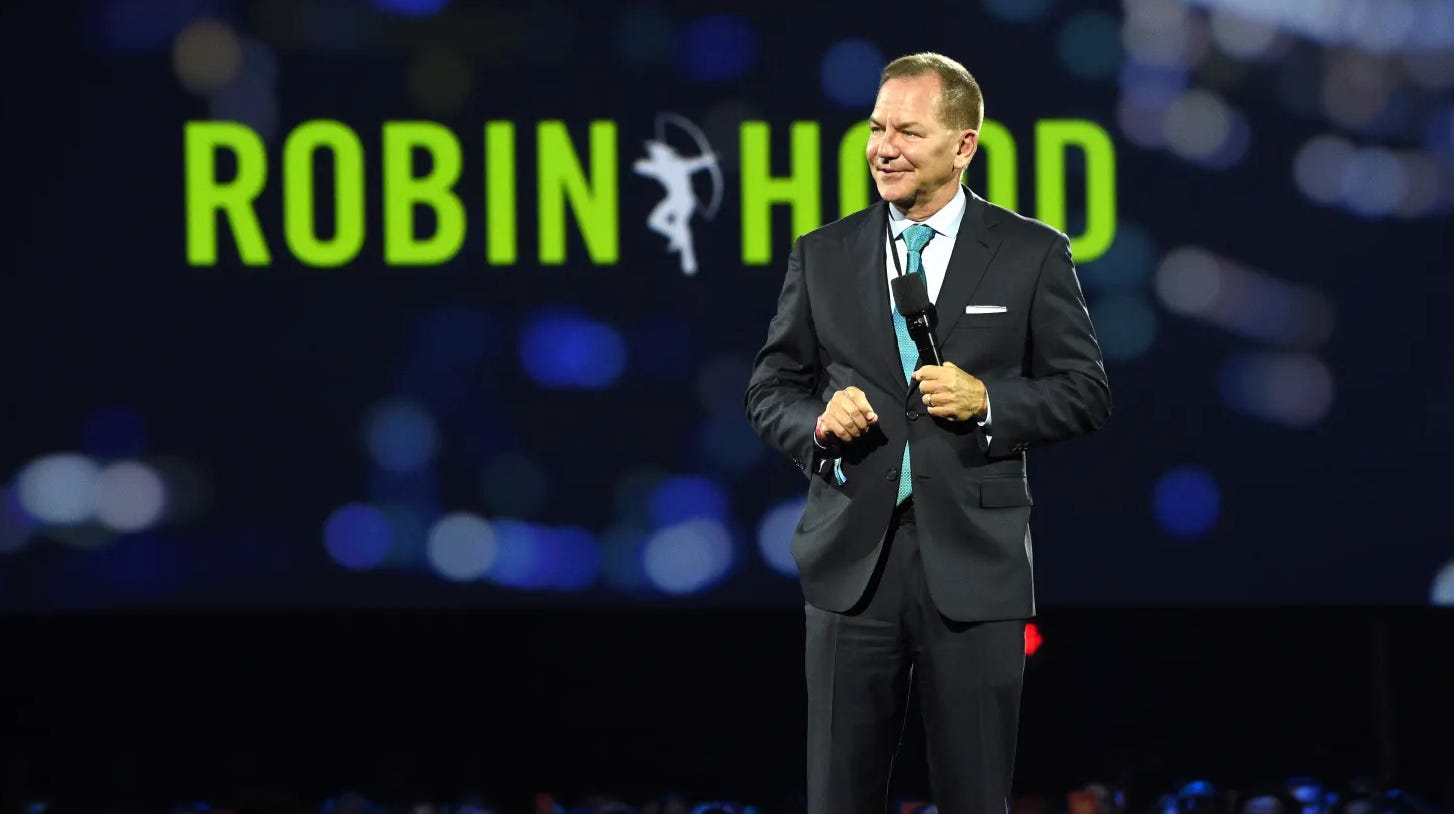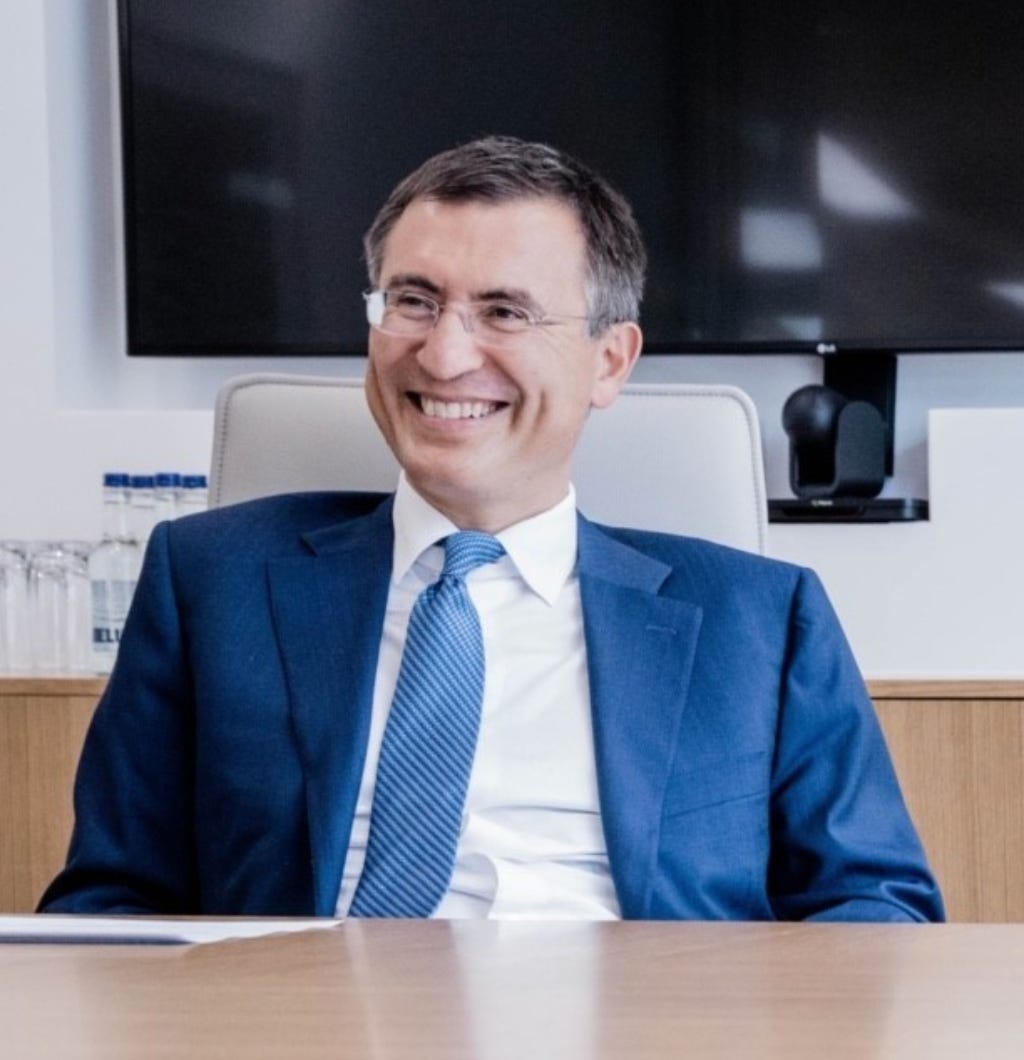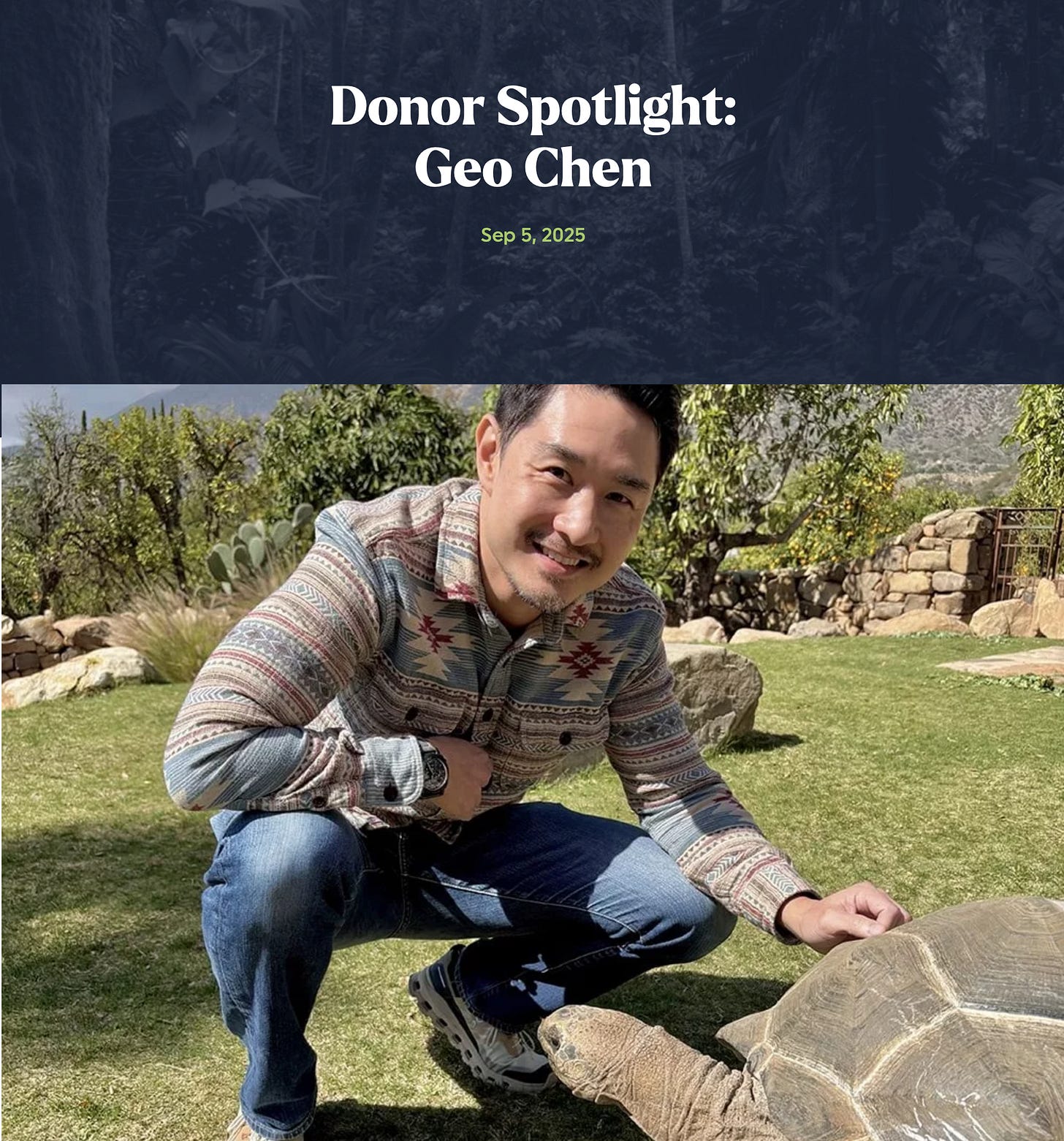Pay it forward
My introduction to global macro trading came from reading Jack Schwager’s book Market Wizards in university. One trader who was interviewed in Market Wizards caught my attention - Paul Tudor Jones. He defined what it meant to be a successful global macro trader during that era - someone who took gutsy but calculated risks, someone who saw the world not as it was today, but what it could be tomorrow.
I admired Paul Tudor Jones for not just how he made his money, but what how he gave it away. At the young age of 34, he used his trading earnings to found the non-profit organization Robin Hood Foundation1, a non-profit that employs a novel “venture philanthropy” approach to fight poverty in New York City. Since its inception, Robin Hood has distributed over $3B USD to hundreds of grantees and programs in NYC, and their annual gala is one of the most high-profile charity events in the city. As I embarked on my career as a trader, I told myself that if I ever made a significant amount of money, I would follow in the footsteps of Paul Tudor Jones and use the money to do good in the world.
The top 1% of traders and investors are rewarded handsomely - almost unfairly, relative to every other profession in the world. Our profession enjoys the benefit of having vast and deep financial markets - an ocean of opportunity where multiple edges can be applied over multiple time frames and markets. Multi-strategy funds take this to an extreme, enlisting hundreds of portfolio managers to run a multitude of uncorrelated strategies that deliver billions in profits for their investors and partners. The annual compensation for lead portfolio managers at these firms start in the low millions of USD.
Traders and investors also benefit from the power of compounding, a magical advantage that allows us to increase our profitability year after year even if we deliver the same performance. A fledgling trader making 30% on $100k USD of capital will make the same income in his first year as someone working minimum wage in the US. However, if he continues to compound his trading account at an 30% annualized return, he will take home $112k in annual income by the end of year five, along with $382k in cumulative profits over the five years.
In comparison, a musician, artist, or sportsperson would have to be in the rarified top 0.1% of people in their field to come close to earning what a profitable hedge fund trader makes. I’ve met dozens of hedge fund and crypto traders who sit at home trading in their PJs, yet earn more than world-famous athletes and musicians who sell out stadiums wherever they compete and perform.
According to the Forbes 2025 billionaires list, finance and investing mints more billionaires than any other industry. Some may say that financiers and traders have an unfair advantage; others justify it as a necessary byproduct of capitalism and its ability to create and destroy enormous sums of wealth. Whether they are positive or negative, these advantages put traders and investors in a unique position to accumulate and concentrate wealth. I believe that this advantage comes with the responsibility to create positive change in the world with the wealth that we accumulate.
#311 on the Forbes 2025 billionaires list is the UK hedge fund manager Chris Hohn, the founder and principal of Children’s Investment Fund Management (TCI). Hohn is known for making bold, concentrated long-term bets in companies and aggressive shareholder activism. TCI has accumulated a monstrous AUM of $63B USD and is a perennial top performer in the industry.
At the age of 36, Hohn and his wife established the Children’s Investment Fund Foundation with the mission of helping impoverished kids in developing countries. What makes Hohn and TCI unique is that he created a direct link between investment returns and philanthropy by mandating that his fund donate 0.5% of AUM to his foundation.2 In an interview with Nicolai Tangen, Hohn talked about the first time he received a huge bonus working for a New York hedge fund. When told he would receive a $10m USD check, his first instinct was to give it away. “I give away everything I earn. I don’t really care about money other than its value in helping people.”
Today, his foundation sits on $6B USD of AUM and has distributed $2.1B in charitable grants over its lifetime. One of its current priorities is the alleviation of climate change, towards which the foundation has granted a cumulative $806m.
It’s time to tell my own story of how I got into philanthropy - a more modest one than that of Paul Tudor Jones and Chris Hohn. Back in 2011 I started a trading account with a small amount of money. By using the style and strategies I describe in this newsletter, I multiplied the capital by more than 1000 times over the following decade. But with the outsized returns and success came the uneasy feeling that I had made the money without generating any economic or social value. Along the way, I thought back to the early days of my career when I was inspired by Paul Tudor Jones into, as his words describe it, “making ungodly amounts of money and giving it away.”
I started by tackling rainforest deforestation, a problem that impacts climate, plants and animals, and communities. Being the finance-oriented person I am, I Googled “How do I buy rainforest?” and came across the Rainforest Trust, an NGO whose mission is to protect and save rainforest around the world. It turns out that it’s possible to save a lot more rainforest for a lot less money than I thought. I eventually served on their board for nine years, a journey that’s described in this recent profile:
In 2020 I had the foresight to aggressively position my trading book for the covid lockdowns and market selloff that occurred in March. I then flipped and went long crypto, gold, and equities later that year. The windfall profits gave my wife and I the seed funding to establish the Huang Chen Foundation - a vehicle that would formalize our giving and support causes in nature conservation, climate change, and refugee aid.
Since then, our foundation has saved thousands of lives (both humans and animals) and tens of thousands of hectares of rainforest and ocean via the grants that we write. The ability to transform trading ideas into real world impact is a magical thing, and it motivates me to continue risking my capital in the markets instead of closing up shop and just playing padel all day.
One common reason people put off philanthropy is that they are waiting until later in life to start giving their money away. I’m glad I started giving early because the practice of philanthropy itself has brought joy and fulfillment to my life and educated me in areas outside of financial markets. I would have missed out on all that if I waited until I was old.
Another reason to act now is that the world’s problems are accumulating while we sit around and discuss what should be done. Problems like refugee displacement, climate change, and mass extinction of species are out of control because we didn’t take enough action in the past to prevent them, and now they are accelerating faster than you can compound your wealth. Thirty years from now when the world is three degrees hotter, I don’t want to explain to my kids and grandkids that I could have done something about it, but didn’t.
Me at the Thanksgiving table: “Half the world is on fire or underwater, but hey, at least we’re rich!”
Another excuse I often hear is that philanthropy is for people who are wealthier than me. It’s a feeling of futility - that the contributions of people with more zero’s in their net worth will dwarf whatever I can possibly give. Believe it or not, I’ve heard this excuse from borderline billionaires. Imagine if everyone in the world decided that it’s the job of the next tier of wealth to do the heavy lifting for philanthropy? There would be a lot less giving and a lot more suffering. The responsibility to take action falls on everyone, regardless of wealth and means. If it’s not us confronting the world’s problems, then who?
If you’ve had success in the markets (or even if you haven’t), then I urge you to give early and give generously. Giving is not just a means to an end, but an end in itself. The journey of philanthropy pulls us out of our comfort zone and forces us to interface with people and situations we normally would not encounter in our sheltered lives. It gives us purpose and fulfillment as well as the feeling of agency that we are doing something positive for the world.
Finally, if you care about nature, animals, and climate, consider donating to Rainforest Trust. Protecting rainforest is one of the most effective ways to slow down the loss of biodiversity and mitigate climate change. They have the top rating on Charity Navigator and you can even choose what countries and endangered species you want to target your funds to.
Share this post with your fellow traders, investors, and bankers. Let’s spread the word and turn that Federal Reserve funny money into real world impact.
Five years after founding Robin Hood, Jones co-founded the Everglades Foundation, an advocate for conserving wetlands in Florida.
He switched from a formulaic mandate to a discretionary one after his divorce from his wife in 2012.






❤️